Detailed introduction of the University of Pula:
Introduction
The University of Pula (Croatian: Sveučilište Jurja Dobrile u Puli, Latin: Universitas studiorum Polensis Georgii Dobrila), also known as the University of Juraj Dobrila, is a public university in Croatia.
Overview
Number of students: The exact number of students is not clearly given, but judging from its size, it is a large-scale university in the local area, providing higher education opportunities for many students.
Number of faculty and staff: The specific number of faculty and staff is not clearly announced, but as a comprehensive university, it has a certain number of teachers and scientific researchers to support teaching and research activities.
Teaching departments: The school has several teaching departments, including the Department of Economics and Tourism, the Department of Humanities, the Department of Music, the Department of Italian Studies, the Department of Educational Sciences, etc.
History
The establishment of the University of Pula is part of the decentralization process that began in Croatia in 2004. It was established based on regional needs, the development strategy of the education sector, and the new Law on Scientific Activities and University Education. Although it was officially established in 2006, it includes teaching units that have existed since the 1960s.
Establishment time
Officially established in 2006.
School strength
Rich disciplines and majors: covering many fields such as economics, tourism, humanities and arts, music, Italian, and educational sciences, providing students with a wide range of professional choices to meet the interests and career development needs of different students.
Significant scientific research results: 2,110 scientific papers have been published and cited 6,999 times. The research fields cover liberal arts and social sciences, philosophy, political science, environmental science, law, biology, computer science, medicine, business, sociology and other disciplines. These scientific research achievements reflect the strength and influence of the school in academic research, and also provide students with opportunities to participate in scientific research projects, and cultivate students' scientific research capabilities and innovative thinking.
Extensive international cooperation: actively participate in international education and scientific research projects, such as Interreg, Tempus, IPA and FP7, and establish cooperative relations with universities and scientific research institutions in many countries and regions, carry out student exchanges, teacher exchanges, cooperative research and other activities, provide students with a broad international exchange platform, and enhance the internationalization level of the school.
Institutional nature
Public university.
Educational philosophy
Committed to actively participate in international scientific and educational projects, constantly pursue excellent research results, focus on internal resource development, strive to achieve the goal of improving the quality of life, promoting the development of the surrounding environment and promoting overall economic growth, provide students with high-quality education, and cultivate professionals with innovative spirit and practical ability to enable them to adapt to the needs of social and economic development.
Key laboratories and disciplines
Key disciplines: Economics and tourism discipline is one of the school's advantageous disciplines. Its related majors have a high level and rich experience in teaching and scientific research. It focuses on cultivating students' professional capabilities in economic management and tourism planning to meet the needs of local and international markets for related professionals. In addition, the related disciplines of the humanities department, such as history, art, and philosophy, also have certain characteristics and advantages, and have contributed to the inheritance and promotion of cultural heritage and the cultivation of talents with high humanistic literacy.
Key laboratories: No clear key laboratories were found in the school, but the school's various teaching departments may be equipped with corresponding professional laboratories and research centers, providing necessary facilities and platforms for teaching and scientific research activities. For example, the Department of Economics and Tourism may have a tourism planning and management laboratory, an economic analysis laboratory, etc., and the Department of Humanities may have a language laboratory, a cultural research center, etc.
Department
The school is mainly composed of the following departments:
Department of Economics and Tourism: Professional courses such as economics and tourism are offered to cultivate students' professional skills and practical abilities in economic management and the tourism industry.
Department of Humanities: Covering majors in multiple fields such as art, humanities, history, and language, focusing on cultivating students' humanistic literacy, cultural inheritance, and innovation capabilities.
Department of Music: Focuses on teaching and research in music education, performance, and creation, providing students with a professional music learning and practice platform.
Department of Italian Studies: Mainly conducts teaching and research in Italian language, literature, and culture, and cultivates students' Italian language ability and cross-cultural communication ability.
Faculty of Educational Sciences: Provides professional courses such as educational theory, educational methods, teacher training, etc., to cultivate professional talents in the field of education.
Ranking
According to Edurank data, the University of Pula ranks 4308th among 14,131 universities in the world, 1133th among 2785 universities in Europe, and 7th among 43 universities in Croatia.
Expenses
Tuition fees for different majors and degree levels vary, for example:
Bachelor's degree programs in economics, computer science, psychology, etc., have an annual tuition fee of about 10,000 Croatian Kuna;
Master's degree programs in the above majors have an annual tuition fee of about 12,000 Croatian Kuna;
Doctoral degree programs have an annual tuition fee of about 15,000 Croatian Kuna.
Campus environment
Excellent location: The school is located at Zagrebačka 30 in Pula, Croatia. Pula is a city with 3000 The ancient city with a history of 100 years is located in the southern part of the Istrian Peninsula. The region has a profound historical and cultural heritage, beautiful natural scenery, and is close to Italy. It is an important link between Eastern and Western Europe. This unique geographical location makes the school have a strong cultural diversity and provides students with rich cultural experiences and exchange opportunities.
The campus facilities are complete: the campus has modern teaching facilities and equipment, such as libraries, laboratories, computer rooms, etc., which provide good conditions for students' study and research. In addition, the school also pays attention to campus cultural construction, providing students with a variety of club activities and cultural exchange activities to promote the all-round development of students.
-

University of Dubrovnik
-
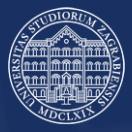
University of Zagreb
-
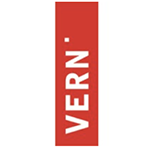
VERN' University
-
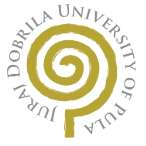
University of Pula
-

University of Rijeka
-
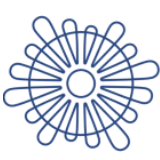
University of Zadar
-

Zagreb University of Applied Sciences
-
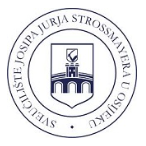
J.J. Strossmayer University of Osijek
-
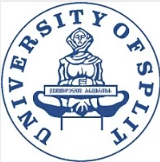
University of Split
-

Karlovac University of Applied Sciences
-

Mesoamerican University
-

Istmo University
-

Mariano Galvez University of Guatemala
-

Regional University of Guatemala
-

Galileo University
-

Francisco Marroquín University
-

Rafael Landívar University
-

University of the Valley of Guatemala
-

University of San Carlos of Guatemala
-

Technological Institute of Tlaxcala Plateau
-

Golfo University
-

Technological University of South Sonora
-

Technological University of Huejotzingo
-

Tizimín Institute of Technology
-

Chilpancingo Institute of Technology
